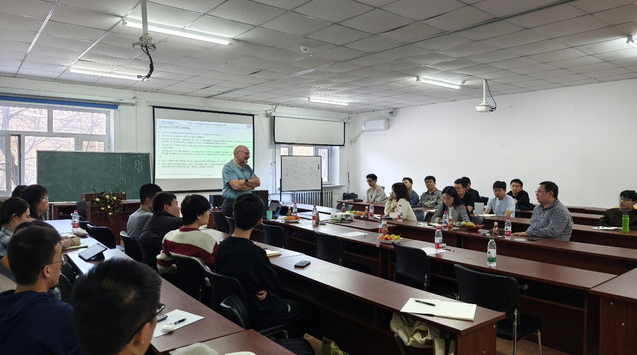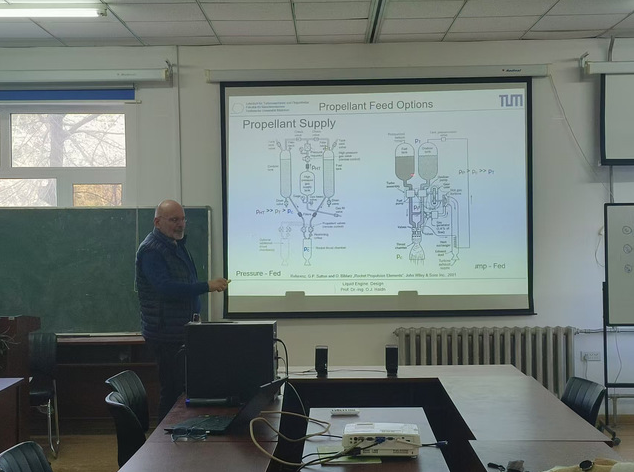(Written by Li Xin) Recently, at the invitation of Professor Zhang Silong, Vice Dean of the School of Energy Science and Engineering, Professor Oskar J. Haidn from the Technical University of Munich (TUM) visited the school for academic exchanges.
Professor Oskar J. Haidn is a tenured professor at the Technical University of Munich, Germany. His main research areas include liquid rocket engines, combustion theory, and heat and mass transfer. With over 30 years of experience in aerospace propulsion, he has served as Deputy Director of the Institute of Aerospace Propulsion at the German Aerospace Center (DLR) and Director of the Space Propulsion Research Institute at TUM. Professor Haidn has extensive expertise in the design and optimization of liquid rocket propulsion systems. Funded by the German Research Foundation (DFG), he has conducted in-depth research on methane rocket engine technology. Prof. Haidn has authored more than 300 papers in Top-tier Aerospace Journals and conferences, written over 10 Academic monographs, and has been honored as an Associate Fellow of the American Institute of Aeronautics and Astronautics (AIAA).
During his visit, Professor Haidn delivered 6 Academic lectures to the faculty and students of the School of Energy Science and Engineering, focusing on component design and system optimization of liquid rocket engines. Drawing on his years of work experience at the German Aerospace Center and his extensive teaching and research background at TUM, he presented key technologies and challenges throughout the lifecycle of rocket engine design and development. He also shared personal insights from his long-standing career in space propulsion. The lectures were rich in content and delivered in an engaging atmosphere. Professor Haidn’s humorous and insightful responses, along with explanations grounded in his personal experience, were well received by students, who found the sessions highly rewarding.
Following the lectures, Professor Haidn and Vice Dean Zhang Silong engaged in several discussions on future collaboration, primarily focusing on graduate student training and joint research projects.





